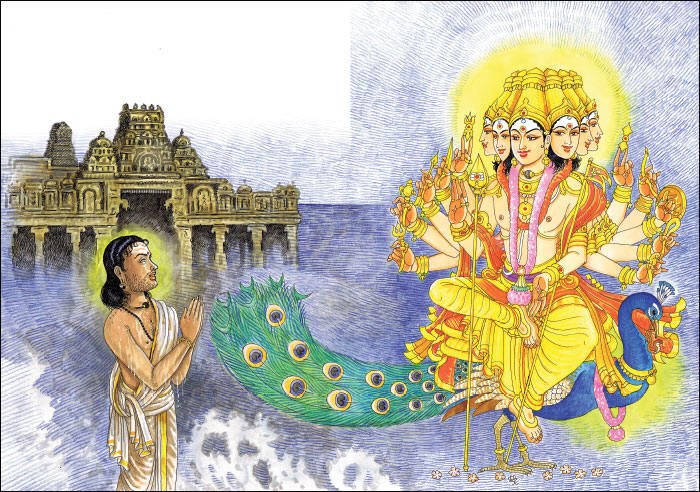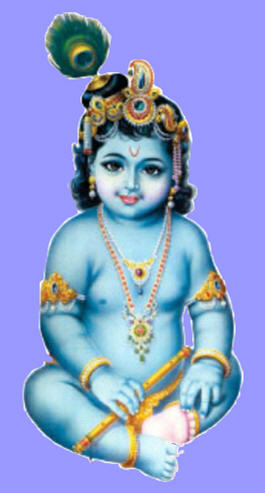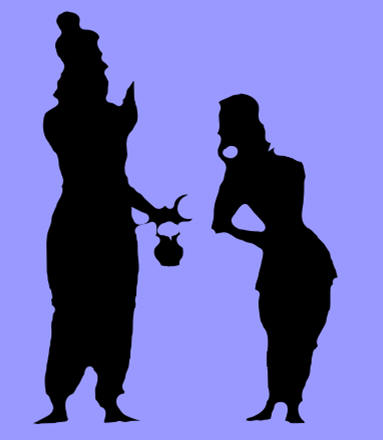007StaretsyDivineGrace
திருவருள் செல்வர்கள்
திருவருள் = Divine Grace
செல்வர் = Starets
செல்வர்கள் = Staretsy (Plural)
"Staretsy" is a plural form of "Starets":
http://www.memidex.com/staretsy
Starets = spiritual leader(s) whose wisdom stems from God as obtained
from ascetic experience.
Posted Date : 06:00 (03/07/2018) July 3, 2018 Sakthi Vikatan
திருவருள் செல்வர்கள்! - 7 - வடமலையப்ப பிள்ளை
007StaretsyDivineGrace = 7-Vadamalayappa Piḷḷai
007StaretsyDivineGrace
Author:பி.என்.பரசுராமன் P.N. Parasuraman
Selvarkaḷ (Startsy = plural of Starets) are many. Among them, Aruḷselvarkaḷ (Starets with Divine Grace) are a few. (Starets = He whose wisdom stems from God as obtained from ascetic experience.) Let us meet one with grace and the other with Divine Grace! 1
This historical event took place in Tirunelveli. It started in Iraiyūr: the other names are Iḷaiyūr and Irasai. Vadamalaiyappa Piḷḷai was a caste affiliate member of kār-kātta-vēḷāḷars ( = who practiced endogamy). He was no stranger to poverty. Once he reached the age in analytical thinking, he decided education was a ticket out of poverty and a higher standard of living, culture… He wandered far and wide until he visited with Vaishnava Acharya Kulaguru of Vijayanagara kings. He paid homage and never said one word about his poverty or the education he wanted to receive. 2
When the Achārya took one look at Vadamalaiyappar, he read his cues and understood them. He said, “Appā my child! Don’t be afraid. It is my responsibility to feed and educate you. You stay with me.” As the Achārya promised, he gave him a solid basic and advanced knowledge in grammar, literature, and prosecution of a war. 3
Tirumēṉi Ratṉakavirāyar described Vadamalaiyappar’s expertise in military strategy was that of a stalwart. 4

Though the lotus flower is in the lake, does it not attract the spectators far off on the lakeshore? Likewise, the news of Vadamalaiyappar’s power of intellect, war-related strategic studies, and ethical conduct reached the Madurai Pandya king Tirumalai Nāyakar (1623-59 CE). 5
There is a Tamil saying, ‘The king likes the intellectually gifted.’ (= `அறிவுடை ஒருவனை அரசனும் விரும்பும்') Nāyakkar sent the king’s representative to Vadamalaiyappar. The king’s office-bearer greeted Vadamalaiyappar and said, “King Tirumalai Nāyakkar asked that I bring you to him. He has sent a palanquin. I don’t know the reason for this invitation. It should be for your good.” 6
Vadamalaiyappar was not jumping for joy because the king invited him. With humility, he went on his way thinking, “When you do your duty, wealth will come on its accord.” (“கடமை யைச் செய்தால் உடைமை தானே வரும்”) When he entered Madurai, Aṉṉai Mīṉākṣi Temple tower and Chokka Nathar Temple tower were visible to Vadamalaiyappar’s eyes. Paying homage to them, he continued his journey. 7
As he continued his journey, his mind was agitated. The reason was that Madurai was in disarray because of foreign invasions. He thought to himself, “Is this the Madurai that I know from reading Cilappathikāram and Madurai Kāñchi? When will I see with my physical eyes what I saw with my inner eyes?” He was sad thinking like this. 8
As soon as he entered the king’s court, Tirumalai Nāyakkar noticing Vadamalaiyappar thought, “What I heard was true. Our reign will attain greatness because of him.” The king was happy to see him. 9
The king offered Vadamalaiyappar a seat and said, “I am happy to announce that I appointed you, being literate and accomplished in the Art and Science of War, as the head of Tirunelveli division. I think you will prevent invasion and occupation by foreign forces and protect my subjects.” Vadamalaiyappar accepted the position granted by the king. He ruled the area assuring people to live their lives in full measure with no want or deficiency. 10
The man in poverty became a wealthy man. Should he not take the next step forward? God made it possible. 11
Tirumalai Nāyakkar rule ended in 1659 C.E. Chokkanātha Nāyakkar ruled from 1660 to 1682 C.E. During his rule, Vadamalaiyappar was the head of the Tirunelvēli division. 12
Vadamalaiyappar did a lot of good to the people. More than that, he did greater good to Tamil language and the Tamil poets. Because of that, people learned Tamil with vigor. Besides, a new language came into being, spreading the fame of Vadamalaiyappar. 13
Those days, there was a multitude of Perumāḷ Servitors in the town of Thentiruppērai. They were the staunch adherents to the Vedic injunctions. Narayana Dikshithar is one among them. He was preeminent not only in devotion to Tirumāḷ but also devoted to and proficient in Tamil. 14
Dikshithar had a huge mansion and a plethora of fertile lands. Because of it, he had no worries, enjoyed the beauty of Tamil literature and immersed himself joyously in the sea of devotion to Vishnu. “Hardship for paragons of virtue comes and goes. Because of it, others get the benefit. When ordinary people face hardship, it may or may not leave, but it certainly gives trouble to others.” This is the saying of the wise men. That (hardship) happened in Dīkshitar’s life. 15
There was no rain for a year. There were no crops. People unable to pay the land tax were in a quandary. 16
The Income Tax Collector appointed by Vadamalaiyappar put all the delinquent taxpayers in Tirunelveli jail. Dikshithar was no exception. ‘To what Jīvan (life form) did I cause injury? That is why I face distress. There is no sense in excoriating the jailers.” He concluded he had to appeal to Bhagavan. 17
Remaining in jail, he sang Tamil songs and named them, ‘Kuzhaik kāthar pāmālai.’ ( = ‘குழைக் காதர் பாமாலை’) One month in jail has come and gone. 18
Vadamalaiyappar has plumbed the depth of Tamil language. Would anyone incarcerate a poet unable to pay his land tax? He does not know it. How to tell him? If a bird chirps, would the stars hear the chirps. It is time to supplicate to Bhagavan. He sang this. 19
வள்வார் முரசதிர் கோமான் வடமலை யப்பன் முன்னே
விள்வாருமில்லையினி எங்கள் காரியம் வெண்டயிற்பால்
கள்வா அருட்கடைக் காண்பார்கருணைக் களிறழைத்த
புள்வாக னாவன்பர் வாழ்வே! தென் பேரைப் புராதனனே 20
He sang a song and fell down. The only sign of life was the flow of breath. 21
Hearing the poem, the jail superintendent immediately ran to Vadamalaiyappar. “O, King! There are a host of your subjects in jail for not paying the land tax. One among them is an impeccable Tamil poet. That poem had your name in it. I ran to report to you.” 22
Vadamalaiyappar jumped on the back of the horse immediately, reached the jailhouse, got down from the horse and ran to the jailhouse. His body, mind, and soul were tremulous seeing the Dikshithar singing with his eyes closed. 23
Vadamalaiyappar: “This incarcerated man: Is he a personified Tamil language, Divine Ecstasy, or the Vedas of the nobility? How could this happen?” He lamented. Dikshithar opened his eyes. Coming to know of the history of his incarceration, Vadamalaiyappar said, “I seek your forgiveness. The jailers, not knowing the details, put you in jail. Don’t be upset. I already released you.” 24
Dikshithar said, “There are many tax delinquents in the jail. Why release me? They all deserve release.” 25
Vadamalaiyappar acceded to his plea and said, “I released them all. All come to the palace.” Many carts came to the jailhouse gate. The erstwhile prisoners went to palace in the carts. 26
In the palace, the people enjoyed the sumptuous meals. The released people praised the Dikshithar for their release from the jail. Vadamalaiyappar declared, “Hereafter including Dikshithar and all of you do not have to pay the taxes. I made your lands tax-free.” 27
Dikshitar and the other people named the jailhouse street, ‘Kāvalpurai street.’ ( ‘காவல்புரைத் தெரு’ = Honorable guardian street) Even today the name remains in vogue. Dikshithar sang all the songs he wrote and sang in the jail before the assembly at the request of Vadamalaiyappar. They were 65. He sang 35 more songs to comply with the request by Vadamalaiyappan. The poems were titled, ‘Kuzhaikkāthar pāmālai.’ ( = ‘குழைக்காதர் பாமாலை’) The ‘Earringer’ Garland of Verses. 'Earringer '= Krishna who wears earrings. Garland of verses in praise of Lord Krishna who wears earrings. 28
Vadamalaiyappar is an accomplished writer. His book ‘Macchapuranam’ was published in 1707 C.E. 29
Here is an incident of grace by Murugapperuman in connection with Vadamalaiyappar’s life story. During the latter’s time, the foreigners stole Tirucchendur Shanmugar Vigraha (idol) and took it in a ship. During their sea passage, a sudden violent storm, because of the grace of Murugan, destabilized and rocked the ship. The foreigners realized that the violent storm resulted from the ire of God for stealth and transportation of a stolen idol; they cast the idol overboard into the sea. The ferocity of storm subsided. The foreigners continued their sea travel. 30
Later one day, Murugan appeared in the dream of Vadamalaiyappar, informed him of the precise location of the Swamy’s idol in the sea and asked him to restore the idol to Senthūr Temple. The idol was back in its place in the temple because of the efforts of recovery by Vadamalaiyappar. Yes, Vadamalaiyappar was the recipient of Paripūraṇa Anugraham (Complete grace and mercy). 31
As the water is in the underground everywhere, the Staretsy (செல்வர்கள் = God’s own Spiritual Leaders) are everywhere. We must know, realize and receive the benefits (from our association with them).
Divine Grace will inundate…
________________________________________________________________________________________________________________________
Karma and Compassion!
We take a birth. God takes Avatāram. But these two births are different. We take birth because of karmic bonds; we cannot choose our parents and other variables as desired by us. God, because of his great mercy for us, takes an Avatara. Where, how and when his Avatara should take place is his way of manifestation.

When one is rolled off the mountain, he falls and sustains injuries. The other walks down the steps. We, as the former, tumbled down to this earth. God, like the latter, on his own accord, plan, and desire makes an Avatara.
When rolled off from the top, injury occurs. For us, that injury is this body because of our past Karma.
--From the shower or torrential rain of words ( = சொற்பொழிவு = talk or lecture) by Sēṅgālipuram Aṉantharāma Dikshithar.
Lie and Truth!
Having lost everything, Harichandran was walking in the forest path. Viśvāmitra walked behind him to catch and prove, ‘Harichandran is an inveterate liar.’

The nightfall was imminent. Harichandran, because of fatigue, felt sleepy. A while later, Visvamitrar asked him, ‘What, feeling sleepy?’ He replied, “Yes, I slept a bit. Forgive me.” Here we should pay attention to the truth. If anyone approaches us taking catnaps, and challenge us, “What, sleeping?” We in an instant would dodge and say, “No, I am awake.” That is a white lie without self-awareness. But Harichandran did not tell a lie even by verbal or vocal mistake or error.